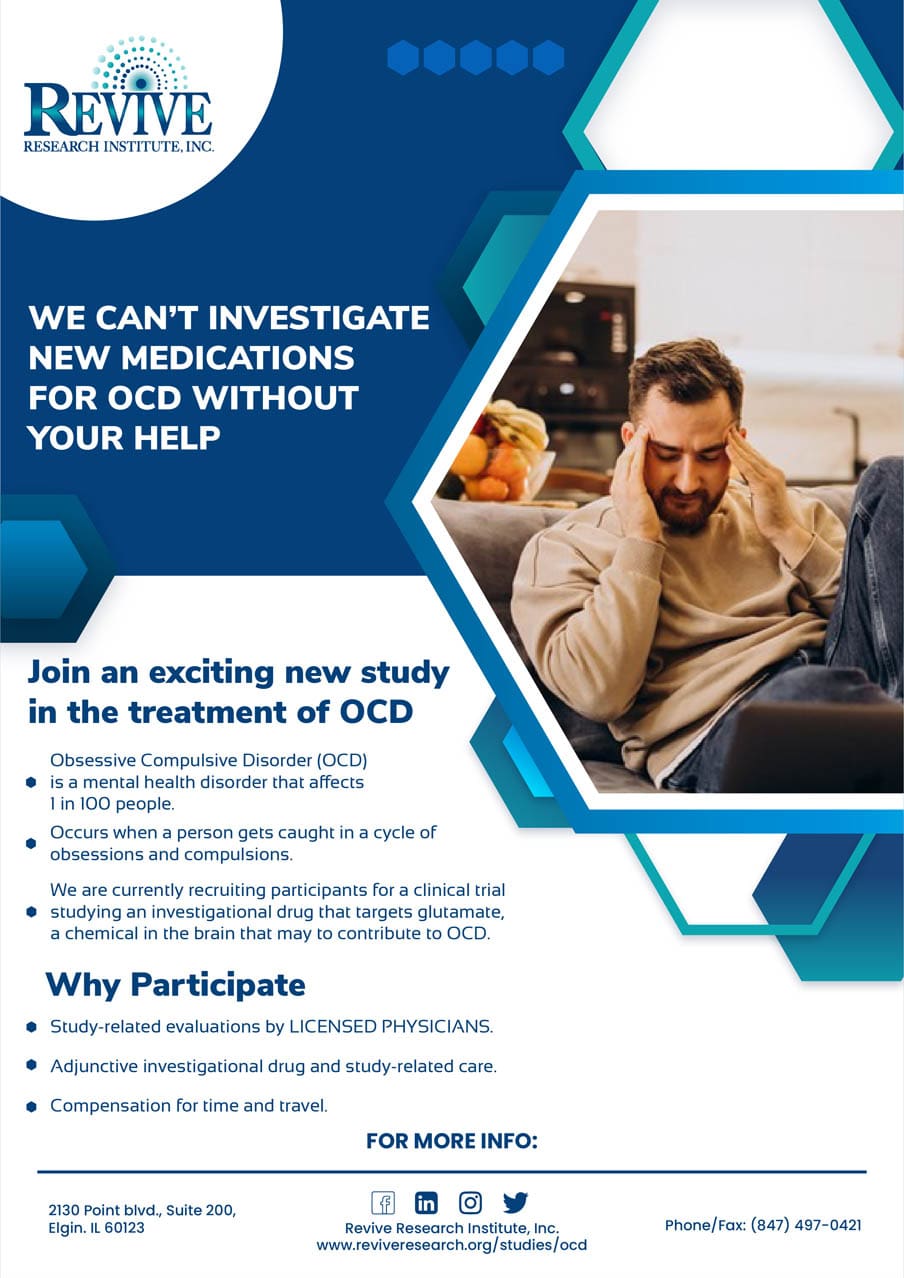Is OCD Controlling the Strings of Your Life?
We’re conducting Clinical Trials in search of a Potential Obsessive-Compulsive Disorder Treatment!
Obsessive Compulsive Disorder (OCD) is a common psychiatric disorder characterized by uncontrollable and repeated thoughts. Over time, the anxiety associated with OCD becomes more intense. The condition affects around 2% to 3% of the overall population.
Revive Research Institute is conducting clinical research to discover a new OCD treatment that might help manage your symptoms.
You may qualify for our OCD clinical trials if you:
- Are 18 to 65 years of age
- Have been diagnosed with OCD for 1 year or more
- Comply with all study procedures
*Take part in this clinical research trial at no cost to you or your private medical insurance. You will be reimbursed financially for your time and travel. In addition, all participants get free study-related treatment from Doctors and Healthcare experts.
*If you are interested in participating in the OCD Clinical Trials or would like more information, please fill out the form so we can determine if you qualify for the study and contact you. Note that this is an entirely voluntary decision. If you change your mind about participating in a study, you can leave at any time.


